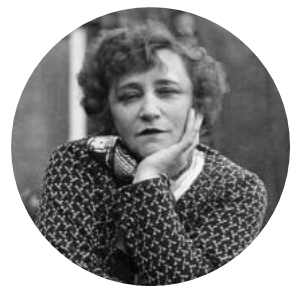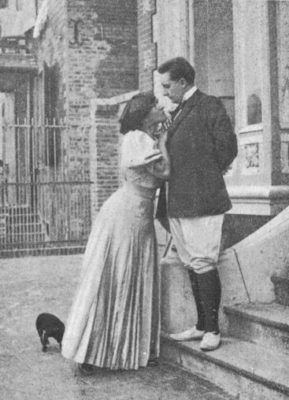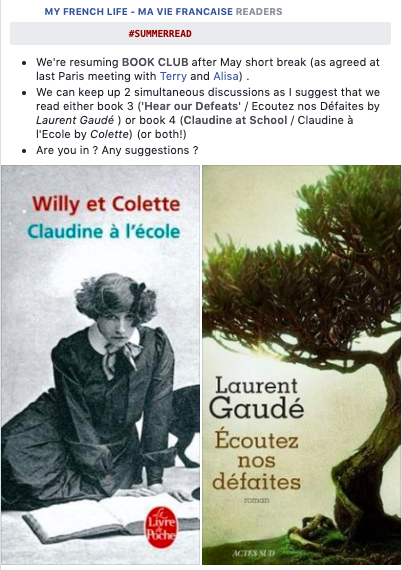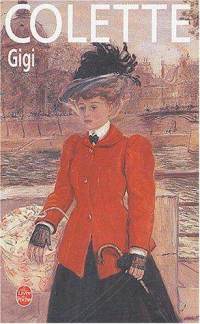Colette: “What a wonderful life I’ve had! I only wish I’d realised it sooner”
 At the beginning of the twentieth century, Henry Gauthier-Villars was one of France’s best-selling authors. He was a dedicated, self-publicising bohemian who published under the pen name “Willy” (no pun intended). But he had a secret about his writing. The books were not all his. A vast army of ghost writers had churned out over fifty novels by 1910. They were erotic and sexy, and the public loved them.
At the beginning of the twentieth century, Henry Gauthier-Villars was one of France’s best-selling authors. He was a dedicated, self-publicising bohemian who published under the pen name “Willy” (no pun intended). But he had a secret about his writing. The books were not all his. A vast army of ghost writers had churned out over fifty novels by 1910. They were erotic and sexy, and the public loved them.
We now know that thirty of these were written by his wife, Sidonie-Gabrielle Colette. Amongst her best-known works are her early novellas, Claudine à l’école, Claudine à Paris, Claudine en ménage, and her later work, Gigi.
Colette: secrets and sexual exploits
 Time Magazine once called them stories “for those who like mild aphrodisiacs in print.”
Time Magazine once called them stories “for those who like mild aphrodisiacs in print.”
Although her sexually explicit novels, and the plays derived from them were wildly popular, she saw none of her earnings. Willy kept all the money.
When she was finally divorced in 1910, Colette was forced to work for long hours on the stage pour gagner les sous. During these years, she pioneered an acceptance of androgyny—the fusion of feminine and masculine characteristics. At that time, it was a totally taboo subject.
Then she scandalised Paris with a series of open affairs with both men and women. Mathilde de Morny—known as Missy—a wealthy lesbian who wore men’s clothes but made fun of masculinity was one of them. When she shared an onstage kiss with Missy, the audience erupted with outrage. The police were called to restore order and the play was banned.
Colette’s biggest scandal?
In 1912, she married Henry de Jouvenel, the editor of Le Matin. This led to the publication of a series of short stories and theatre chronicles.
But she continued her libertine sexual exploits well into her forties when she had an affair with her sixteen-year-old stepson, Bertrand de Jouvenel. Critics have pointed to real life similarities with the plot of her book Cheri, where an 18-year-old man has a sexual relationship with a friend of his mother’s— a woman twenty years his senior.
Secrecy, then success
During the Nazi Occupation in World War Two, Colette hid her third husband, Maurice Goudeket in the attic of her apartment in Paris. He’d already been interned by the Nazis, but through diplomatic contacts she’d managed to get him released. However, they spent the rest of the war living in the fear that he’d be arrested again.
Her moving impressions of daily life in wartime France are covered in ‘Paris From My Window,’ a vivid description of the grim years of Nazi Occupation.
During her lifetime, Colette was considered a talented but limited novelist. She was, however, nominated for a Nobel Prize for literature in 1948, but finally lost to the giant of poetry, T.S. Elliot.
Then, just before her death, Katherine Anne Porter wrote in the New York Times that Colette was “the greatest living French writer of fiction;” and that was while Gide and Proust were still alive.
One of her best-known aphorisms is:
The woman who thinks she is intelligent demands equal rights with men. A woman who is intelligent does not.
Colette was refused a religious burial by the Catholic Church but became the first woman to be given a state funeral in France.
So there! – one can almost hear her saying.
She is buried at Père Lachaise cemetery in Paris under the simple epitaph “ICI REPOSE COLETTE 1873 1954.”
Are you a fan of Colette, her life and her work? Do you agree that she was “the greatest living French writer of fiction?” Share your thoughts in the comment section below!
Image credits
1. Colette, by BNF via Wikipedia
2. Colette & Mathilde “Missy” de Morny, via Wikipedia
3. Gigi Colette, via Wikipedia
4. Grave of Colette, by Nico Paix via Wikipedia
MyFrenchLife Book Club
Members of the MyFrenchLife book club are reading two books simultaneously through the northern summer – one of those by Colette! If you would like to join us and read with us you may do so by following either of these two links: 1. MyFrenchLife – MaVieFrançaise Closed Community Group on Facebook– note that club notices are posted here
– and most discussion takes place on our chat channel in that Group [ Once you join the group you can access the chat channel ]
2. MyFrenchLife – MaVieFrançaise Page on Goodreads









